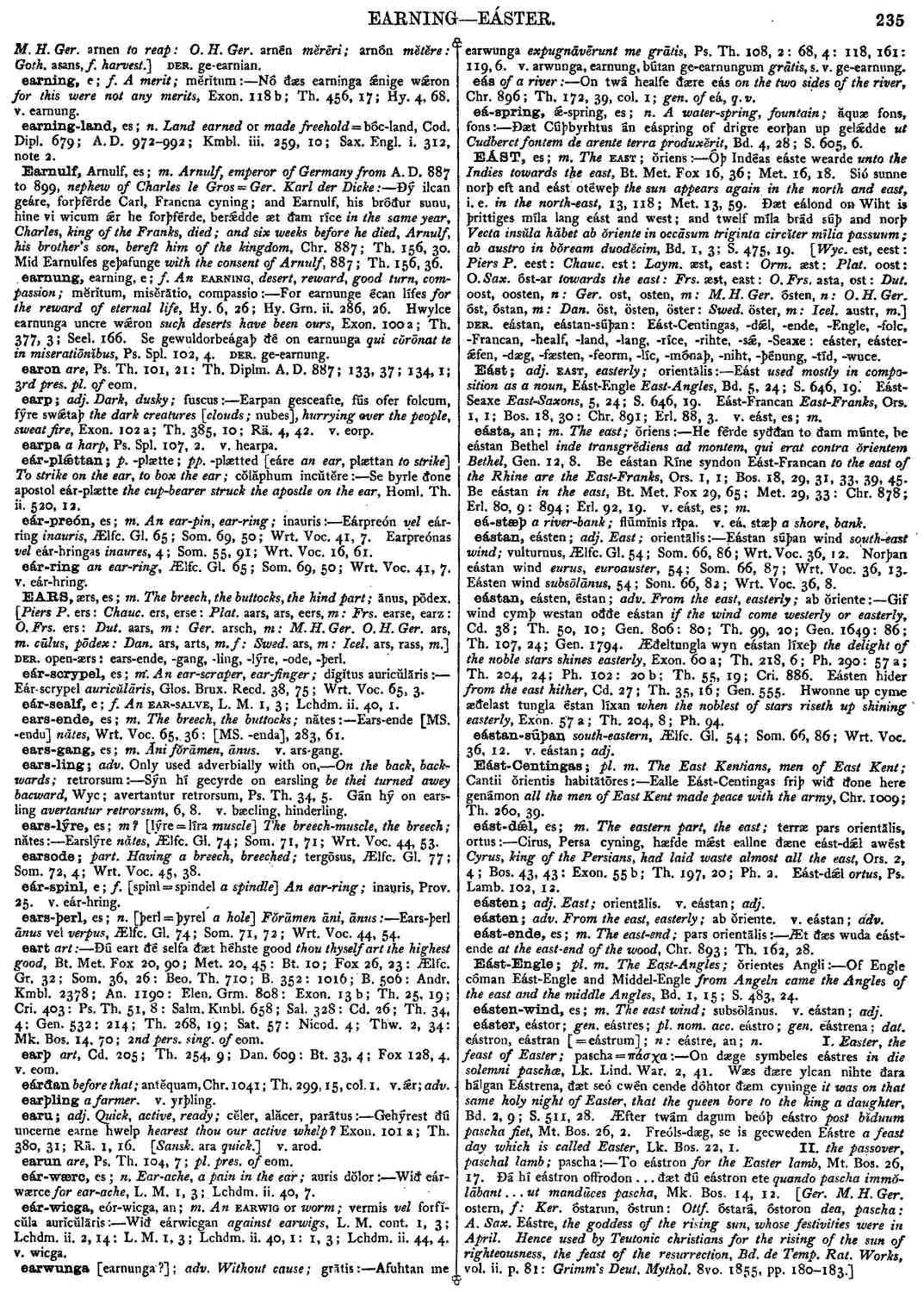eáster
- noun [ neuter ]
-
On dæge symbeleseástres
in die solemni paschœ,
- Lk. Lind. War. 2, 41.
-
Wæs ðære ylcan nihte ðara hálgan Eástrena , ðæt seó cwén cende dóhtor ðæm cyninge
it was on that same holy night of Easter, that the queen bore to the king a daughter,
- Bd. 2, 9;
- S. 511, 28.
-
Æfter twám dagum beóþ eástro
post bĭduum pascha fiet.
- Mt. Bos. 26, 2.
-
Freóls-dæg, se is gecweden Eástre
a feast day which is called Easter,
- Lk. Bos. 22, 1.
-
To eástron
for the Easter lamb,
- Mt. Bos. 26, 17.
-
Ðá hí eástron offrodon . . . ðæt ðú eástron ete quando pascha immŏlābant. . . ut mandūces pascha. Mk. Bos. 14, 12. [Ger. M. H. Ger. ostern, f; Ker. óstarun, óstrun: Ottf. óstará, óstoron dea, pascha: A. Sax. Eástre, the goddess of the rising sun, whose festivities were in April. Hence used by Teutonic christians for the rising of the sun of righteousness, the feast of the resurrection, Bd. de Temp. Rat. Works, vol. ii. p. 81:
Grimm's Deut. Mythol.
- 8vo. 1855, pp. 180-183 .
Bosworth, Joseph. “eáster.” In An Anglo-Saxon Dictionary Online, edited by Thomas Northcote Toller, Christ Sean, and Ondřej Tichy. Prague: Faculty of Arts, Charles University, 2014. https://bosworthtoller.com/8729.
Checked: 1